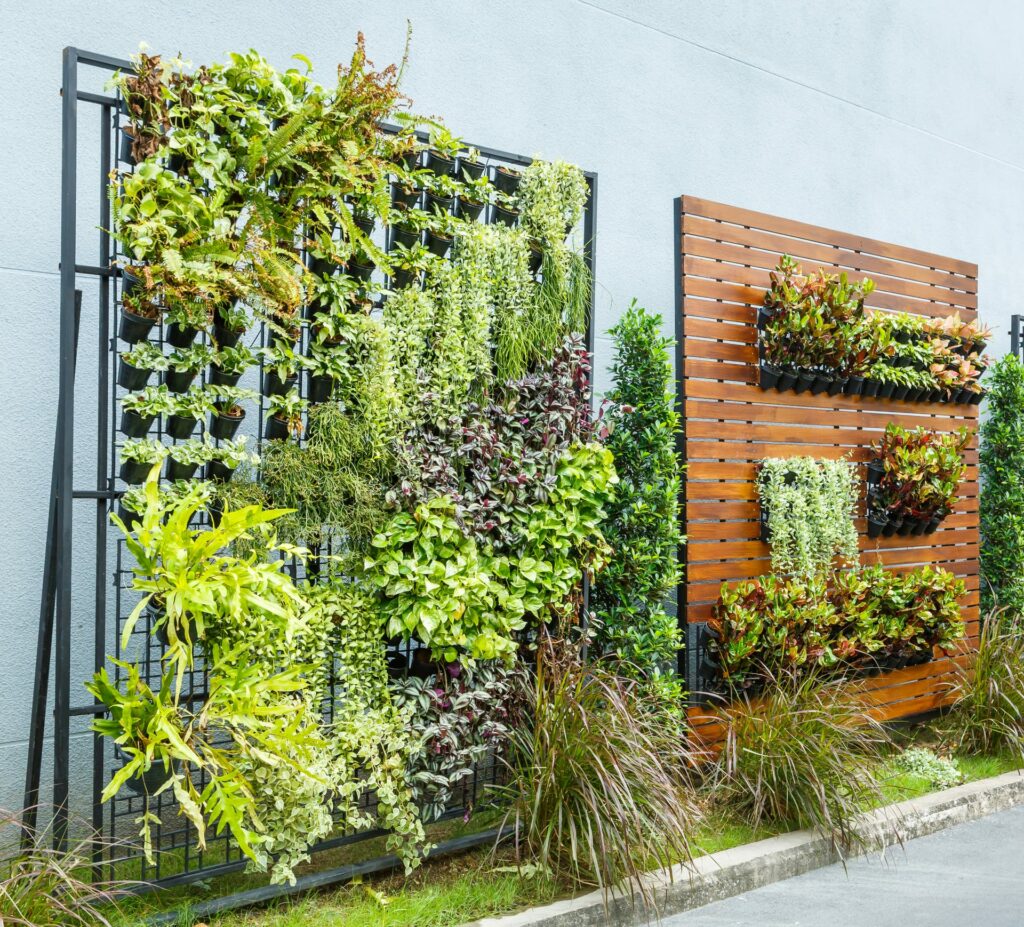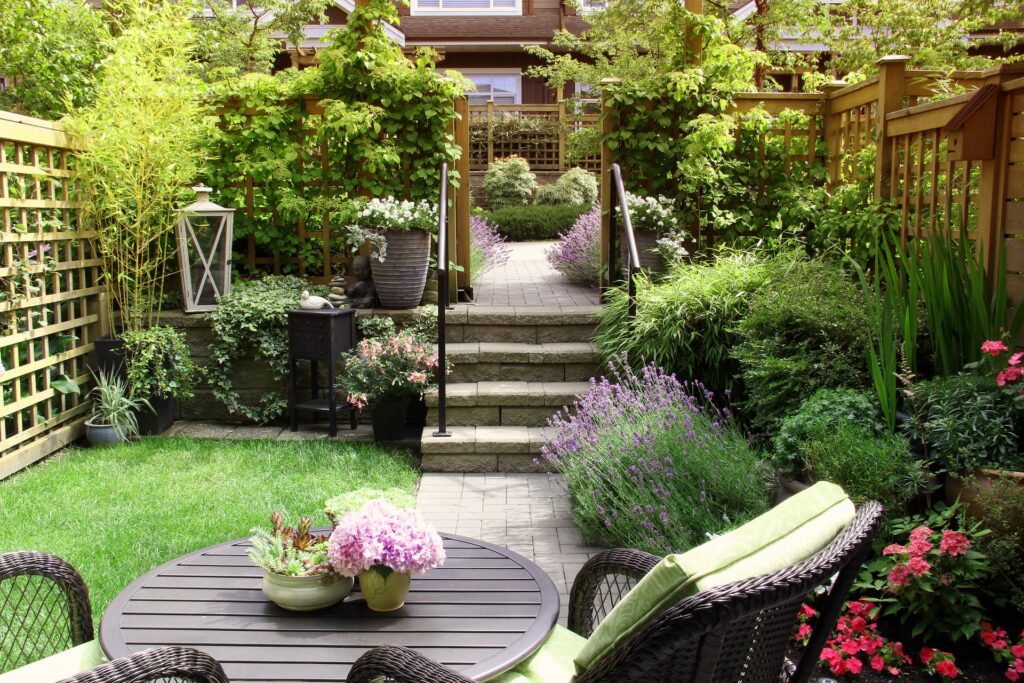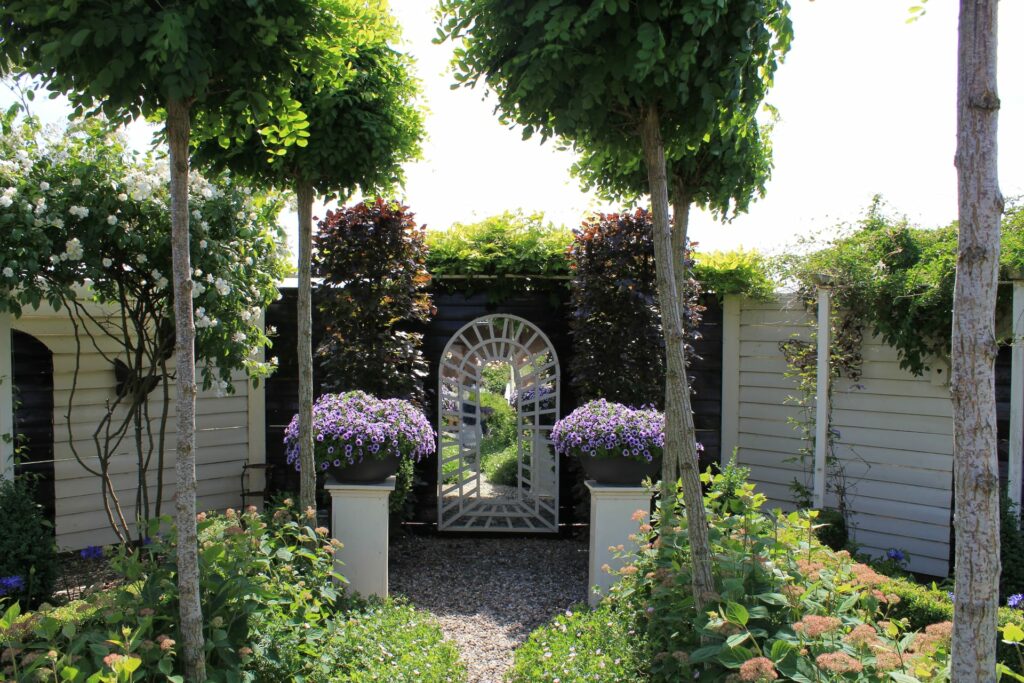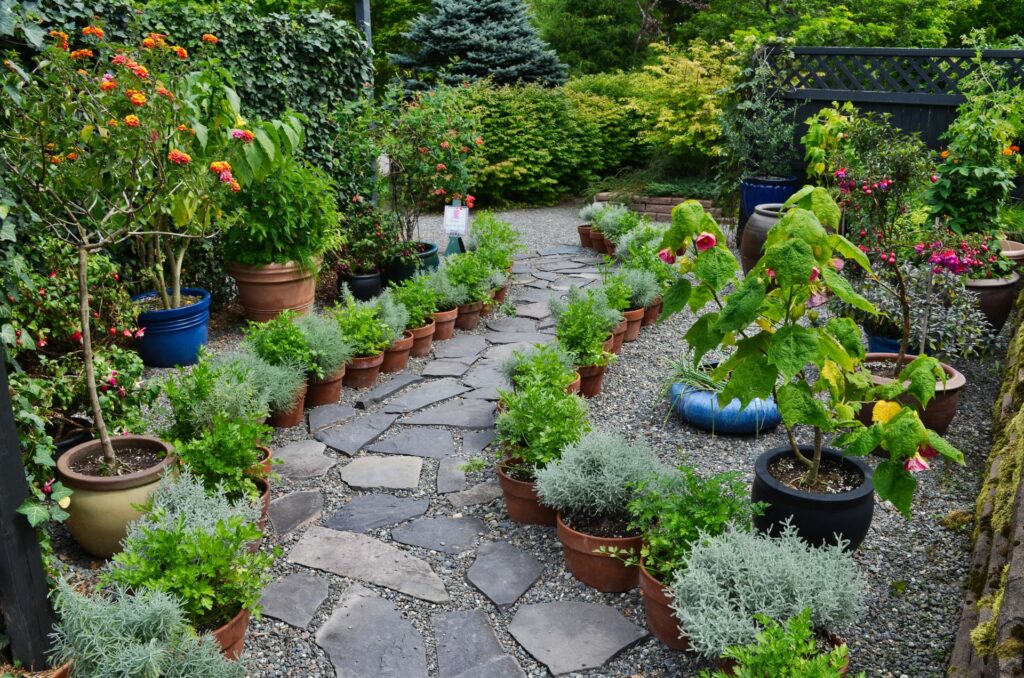Small garden spaces are intimate, charming, and, contrary to popular belief, hold immense potential for creative landscaping. With urban living becoming more prevalent, compact gardens have become a canvas for innovation and style. Here’s how you can transform your petite plot into a lush, functional garden retreat.
Embrace Vertical Gardening
When ground space is at a premium, the only way is up. Vertical gardening adds depth and interest to small spaces. Use wall-mounted planters, trellises, or even a living wall to grow a variety of plants. This method not only expands your planting area but also draws the eye upward, making the space feel larger.

Choose the Right Plants for Your Small Garden
In small gardens, each plant counts. Opt for species that offer year-round interest with a mix of foliage, flowers, and textures. Dwarf varieties and slow-growing plants are perfect for compact spaces. Think of using creeping ground covers that add lushness without taking up much vertical space.
Incorporate Multi-Functional Features
Every element in a small garden should serve multiple purposes. For instance, seating that doubles as storage, a wall that is also a vertical garden, or a water feature that functions as a centerpiece. This approach maximizes utility without cluttering the space.
Use Small Garden Pots and Containers
Containers are the small garden’s best friend. They’re portable, allowing for seasonal changes, and come in various shapes and sizes. Group pots together for impact, or use a single, striking container as a focal point. Remember to maintain a cohesive look by coordinating the pots’ colors and materials with the overall garden design.

Implement a Cohesive Design
With limited space, a cohesive design is key. A consistent color palette, repeated plant types, and uniform hardscaping materials can help unify the garden and make it seem larger. Too many different elements can make a small space feel chaotic and cramped.
Maximize Functionality
Every square inch should have a purpose in a compact garden. Create distinct areas for dining, relaxing, and gardening, even if they’re only a few steps apart. Using scaled-down or foldable furniture allows for functionality without overcrowding the area.
Create a Sense of Privacy in Your Small Garden
Creating a sense of seclusion can make a small space feel like a secret garden. Use lattice screens, tall plants, or hanging baskets to carve out a private oasis. Not only does this enhance the sense of escape, but it also adds vertical interest.

Reflect Light
Mirrors aren’t just for indoors. Placing a mirror on a wall or fence can reflect light and visually double your garden’s size. It also bounces light into shadier corners, allowing for a wider variety of plants.
Install Lighting
Good lighting can make a small garden welcoming at all hours. Use it to highlight plants, garden paths, or dining areas. Soft, subtle lighting can make the space feel cozy and enchanting at night.
Opt for Curved Paths
Curved pathways can make a journey through your garden seem longer and more explorative. They add movement and fluidity, as opposed to straight paths, which can make small spaces feel more confined.

Embrace Potential in Your Small Garden
A small outdoor space does not have to mean compromised beauty or functionality. With the right design techniques, you can maximize your garden’s potential, no matter its size. Use vertical space wisely, choose the right plants, and focus on multi-functionality to create a stunning outdoor retreat. Let these design tips inspire you to transform your compact garden into an inviting, expansive-feeling escape.